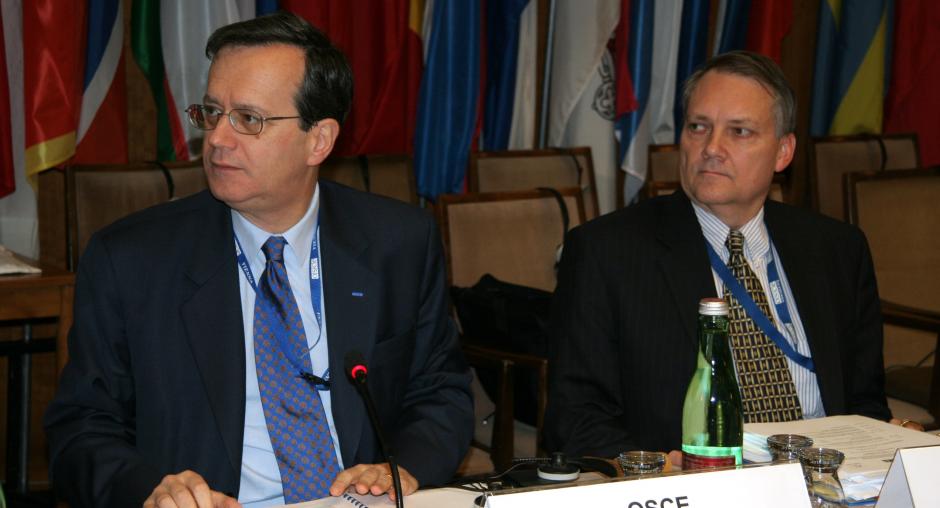OSCE, UN and Council of Europe urge implementing global counter-terrorism strategy

VIENNA, 14 February 2007 - Implementing the United Nations Global Counter-Terrorism Strategy was the focus of a meeting between high-level representatives of the OSCE, the United Nations and the Council of Europe in Vienna today.
The annual Tripartite consultations were hosted by the OSCE this year at the Hofburg Congress Centre.
"The UN Global Counter-Terrorism Strategy establishes a blueprint for invigorating counter-terrorism work at multiple levels," said Ambassador Marc Perrin de Brichambaut, Secretary General of the OSCE.
"Modern challenges are complex and multi-dimensional, and the first line of response to new risks and threats remains the responsibility of States. However, responding at the State level is not enough. The challenges of the 21st century require States to co-operate in new and innovative ways with each other. The importance of our regular high-level meetings lies here."
Participants agreed preventing and combating terrorism remained a top priority for their organizations. They underlined the importance of protecting human rights and fundamental freedoms while combating terrorism. They also said the Strategy can be efficiently implemented only through the consistent long-term efforts of society as a whole and underscored the importance of promoting tolerance and mutual respect for other cultures, religions and beliefs.
The Global Counter-Terrorism Strategy was adopted by the UN General Assembly on 8 September 2006. It outlines a comprehensive global approach towards countering this phenomenon.
The full text of the joint communiqué is available on this page under "Documents".
Among the participants were Sergei Ordzhonikidze, Under-Secretary-General and Director-General of the United Nations Office at Geneva, Terry Davis, Council of Europe Secretary General, as well as representatives of the European Commission, the General Secretariat of the Council of the European Union, the ICRC, the International Organization for Migration, NATO, the Commonwealth of Independent States, the Collective Security Treaty Organization, and different UN bodies and institutions.
Representatives of the OSCE Spanish Chairmanship and the OSCE Troika, which besides Spain includes Belgium and Finland, also took part.
